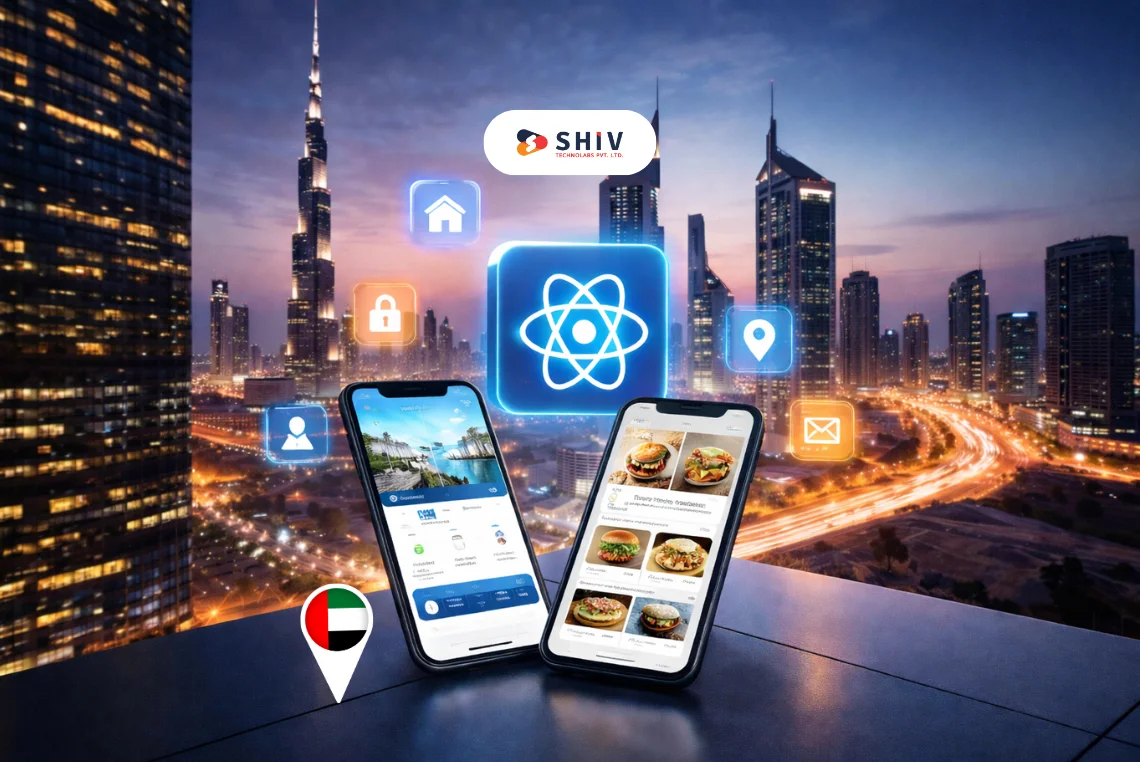Table of Contents
Everyone is turning to AI, and we’re also doing the same! So we’ll ask AI to do all the work and plan an itinerary with best-rated visiting places, food places, etc. This, by the way, is only the first instance of the impacts brought about by AI in travel and tourism.
This blog will explain why AI is important in travel and tourism. Booking processes became faster and more automated as AI and recommendations became more personalized.
The travel industry hires AI development services to compete in the travel app development market. And now, let’s shine a light on what it brings to the table in the travel and tourism industry. How can travel and tourism app development be made simpler and more accessible?
Importance of Travel and Tourism App Development
1. The Digital Revolution of Travel
The last decade has seen the travel industry go through a digital transformation. Statista reports that by 2023 globally, mobile bookings will have amounted to 54% of online travel reservations, up from 31% in 2016.
As for that, the speed and convenience of using mobile apps to book flights, hotels, and tours. This has been a primary reason for the quick adoption of travel apps. This has also given rise to many businesses looking to develop travel and tourism app development to service this trend.
2. User Expectations and Market Demand Pressure
To accommodate more personalized and seamless experiences, travelers are logging in with over 6.8 billion smartphone users worldwide. According to a survey conducted in 2022, 74% of travelers prefer using a mobile app to manage travel plans. The need for travel has skyrocketed.
Therefore, companies have had to adopt innovation and make investments in travel app development services. This will help them meet their expectations and also incorporate various features. It includes AI-powered recommendations and Augmented reality (AR) navigation.
3. Mobile First Strategies Role
Those who place mobile first can improve satisfaction and engagement with the customer. Google’s data says 60% of travelers will leave a site if it is not optimized for mobile, and these results must be taken very seriously.
Building a travel app can help your business tap into the growing mobile user base, streamline online operations, and increase revenue.
React Native – The Best Choice for Travel App Development
1. Cross-Platform Efficiency
The development of travel apps also presents one of the key challenges for businesses as they try to find the right technology. Cross-platform capability is the main feature of react native app development services.
Developers can use React Native to build apps that work on both Android and iOS platforms. Thereby reducing the time and cost of development. In 2023, according to App Annie, reactive app development has reduced development costs by 30% compared to native app development.
2. Cost-Effectiveness
It can be expensive to create a travel app, but using React Native substantially reduces the overall cost. The cost of building a travel app with React Native ranges from $30,000 to $50,000.
On average, with some apps at either end of the price bracket. By using reusable code to speed up the development process. React Native developers can reduce costs for businesses that want to launch their travel apps quickly.
3. Scalability and Performance
React Native is famous for being very scalable. The framework has numerous features and is ideal for building apps that need to handle a high amount of user traffic. A large community of developers and constant updates on Facebook support this.
Travel companies and their apps can reach the same performance levels while scaling with their user base. Therefore, React native app development services are very famous for multiple reasons. To learn more about them, you can visit Shiv Technolabs!
Features of Travel and Tourism App Development
1. User-Centric Design
Travel and tourism app development is centered on user experience. Apps have to seem intuitive, fast, and simple to navigate. A well-designed app can increase user engagement by up to 20%. Then the users are more likely to revisit apps that provide a smooth experience.
Instead of making overcomplicated apps, companies should build apps that let people quickly book, record itineraries, and get customer support.
2. Personalization using AI and Machine Learning
Adding AI and machine learning to travel apps enables businesses to provide one’s recommended travel based on experiences. It also includes preferences, past behavior, and travel patterns. 64% of travelers expect travel apps to give personalized recommendations.
Powered by AI, chatbots can also augment customer service by answering immediate questions about whether it’s essential.
3. Integration with Augmented Reality (AR)
AR continues to expand outreach in travel apps, giving users an immersive experience. AR brings destinations to life for travelers to explore before a visit. According to a 2022 report from Juniper Research, the AR market in travel is predicted to reach an annual value of $9.2 billion in 2026.
With this technology, one can supplement the user experience with detailed information about landmarks and local attractions, as well as navigation assistance.
4. Real Time Updates and Notifications
Travel apps must offer real-time flight status, weather conditions, and transportation schedule updates. This has become a vital feature, as 87% of travelers say they rely on real-time information while traveling.
Users can receive push notifications about itinerary changes, which will help them avoid delays and disruptions.
These are some of the features of travel and tourism app development that can be helpful if you integrate them with your business. If you need to know more about this, visit Shiv Tecnnolabs for more information.
# Travel App Development Cost
Many features, different platforms, and technology stacks will impact the cost of the travel app and its development services. In this table, you’ll get all the essential costs for various types of travel apps.
| Types of Apps | Estimated Cost |
|---|---|
| Basic travel app | $30,000 to $50,000 |
| Advanced travel app with AI/AR | $60,000 to $100,000 |
| React Native app development services | 30-40% cost savings |
Investing money in a travel app for businesses has many benefits, including increased user engagement, customer retention, and brand loyalty.
How the Future of Travel App Development Will Work?
It has been predicted that AI, AR, and voice search will significantly impact future travel and tourism app development. According to the report Allied Market Research, the global travel app market will reach $227.4 billion by 2030.
It is expected to grow at a CAGR of 17.5% from 2021 to 2030. So, if you’re a business that wants to stay competitive in the world of travel. Then it is very essential to invest in innovative travel apps.
Key Trends to Watch:
- AI-powered Travel Assistants: Itineraries and recommendations that are personalized
- AR-enhanced Experiences: Virtual tours and navigation
- Blockchain: Data security for travelers is enhanced
- Voice Search: Hands-free browsing with integration into travel apps
Conclusion
With the travel industry constantly changing, investing in travel and tourism app development is critical to businesses. Who is looking forward to offering a hassle-free and customized travel experience? With React Native app development services, companies can develop cost-effective, scalable apps that suit modern travelers.
The future of travel apps involves AI-driven personalization and AR-enhanced navigation. It means that the way people explore the world will be completely different. Those businesses have adopted mobile-first strategies and stay current with the trends. They will continue to gain a substantial edge in the rapidly growing travel app market.
Therefore, to learn more about travel and tourism app development, visit Shiv Technolabs for more information!






















